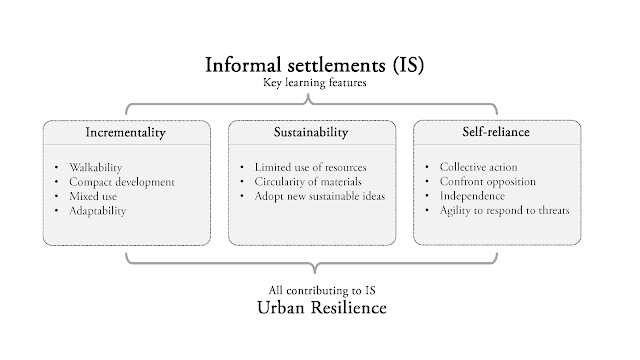How Learning from Informal Settlements Contributes to the Community Resilience of Neighbourhoods
Urbanization in the twenty-first century has experienced a significant slowdown, particularly in the Global North. However, population growth continues to escalate, with most of this increase occurring in the Global South. Most of that growth manifests in the urban environment as informal settlements. These types of neighbourhoods deploy unique strategies to emerge and grow and can teach us much about the value of neighbourhoods as urban units in an uncertain future plagued by the challenges imposed by climate change, political polarization, and urban conflict. However, literature on neighbourhoods devotes little time to exploring these urban manifestations as areas of exploration and learning; instead, most of the scholarship focuses on ways to eradicate these places from our cities. As a result of this perspective, I argue that we have overlooked three important lessons that can be gleaned from informal settlements: incrementality, sustainability, and self-reliance. These characteristics contribute to the resilience of the communities, making informal settlements the predominant neighbourhoods of the twenty-first century. This paper examines global informal neighbourhood practices, unveiling unique community strategies. It reassesses neighbourhood value and offers insights into the urban changes necessary to tackle the next century's challenges.
Keywords: INCREMENTALITY; INFORMAL SE LEMENT; NEIGHBOURHOOD; SELF-RELIANCE; SUSTAINABILITY
1
Author: Samper, Jota
Source: Built Environment, Volume 50, Number 1, Spring 2024, pp. 133-151(19)
Publisher: Alexandrine Press
https://www.ingentaconnect.com/contentone/alex/benv/2024/00000050/00000001/art00010
https://www.ingentaconnect.com/contentone/alex/benv/2024/00000050/00000001/art00010?crawler=true&mimetype=application/pdf


Comments
Post a Comment